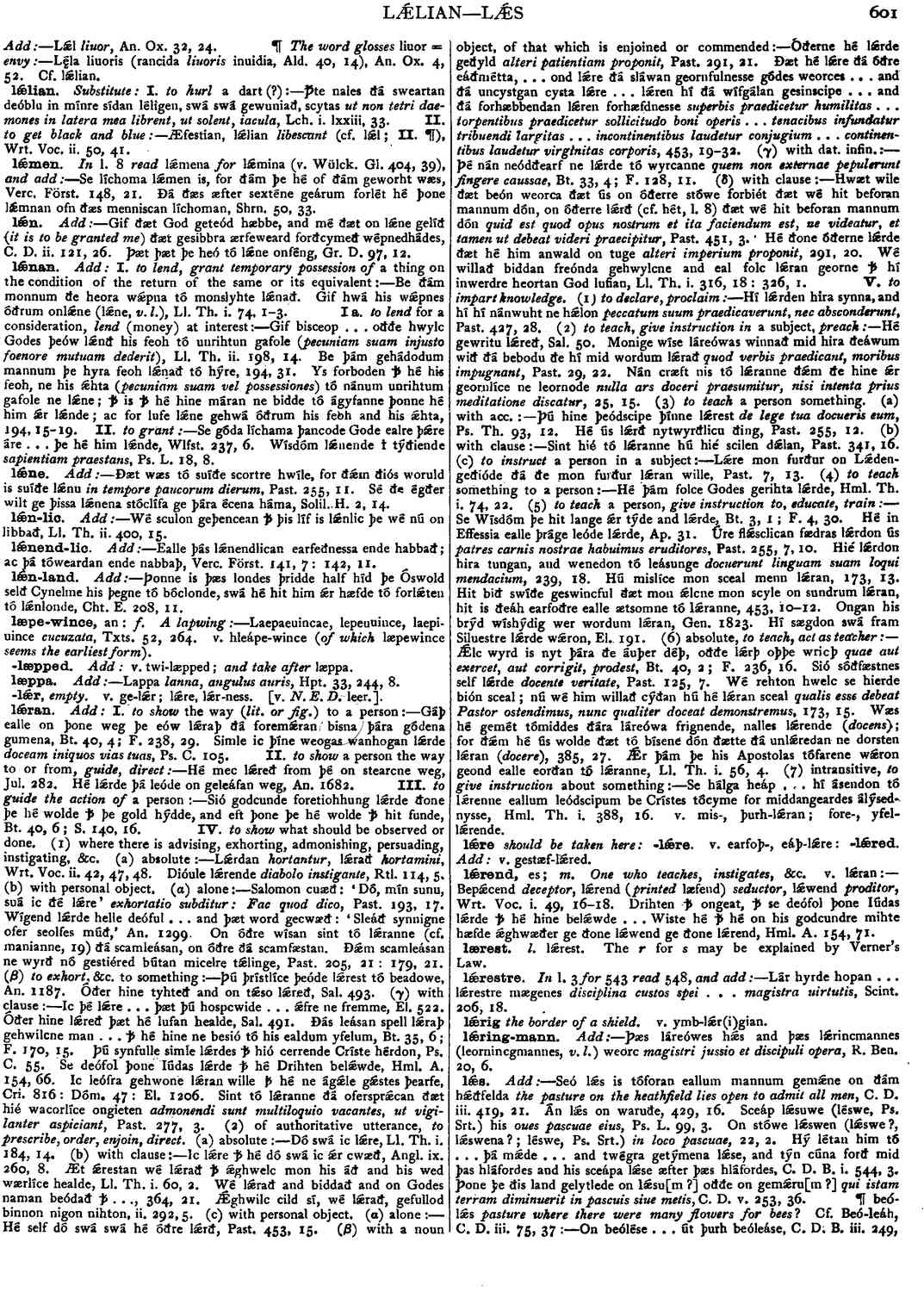lǽs
-
Seó lǽs is tóforan eallum mannum gemǽne on ðám hǽðfelda
the pasture on the heathfield lies open to admit all men
,- C. D. iii. 419, 21.
-
Án lǽs on waruðe,
- 429, 16.
-
Sceáp lǽsuwe (léswe, Ps. Srt.) his
oues pascuae eius
,- Ps. L. 99, 3.
-
On stówe lǽswen (lǽswe?, lǽswena?; léswe, Ps. Srt.)
in loco pascuae
,- 22, 2.
-
Hý létan him tó . . . þá mǽde . . . and twégra getýmena lǽse, and týn cúna forð mid þas hláfordes and his sceápa lǽse æfter þæs hláfordes,
- C. D. B. i. 544, 3.
-
Þone þe ðis land gelytlede on lǽsu[m ?] oððe on gemǽru[m ?] qui istam terram diminuerit in pascuis siue metis, C. D. v. 253, 36. ¶ beólǽs
pasture where there were many flowers for bees ?
- Cf. Beó-leáh, C. D. iii. 75, 37 :-- On beólése . . . út þurh beóleáse, C. D. B. iii. 249,31.
Bosworth, Joseph. “lǽs.” In An Anglo-Saxon Dictionary Online, edited by Thomas Northcote Toller, Christ Sean, and Ondřej Tichy. Prague: Faculty of Arts, Charles University, 2014. https://bosworthtoller.com/54196.
Checked: 0